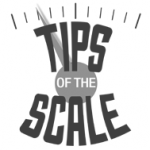The What, Why and How Guide to Understanding Calories because, calories matter.
There’s a new “idea” out there that is leading people to believe that calories don’t matter as long as you’re eating whole foods. The Paleo Diet is notorious for claiming this and encourages people to eat as much as they want of whatever they want, as long as it’s “Paleo.” But the truth is that calories still matter because…science. And while it is true that if we stick to whole, nutrient-dense foods, we’re less likely to overeat due to naturally regulated blood sugar levels and decreased cravings, overeating too much of any food will cause weight gain (fat storage) period.
Calories
We’ve all heard the term, “calories in-calories out,” right? Well, let’s take a little deeper look into that and why that term is so important when it comes to understanding how calories affect body fat.
Humans are like cars…sort of
Food is fuel, and that fuel is measured in calories which converts to energy, similar to the way gasoline is measured in liters or gallons which converts to mileage/kilometers– sort of. (I’m going to stick to gallons and miles for the rest of this lesson because it’s easier for my American brain but I didn’t want our non-US friends to feel left out!)
When we talk about how fuel is used in a car we say it gets 25 miles to the gallon. Meaning it takes one gallon of gas (burned for energy) to go 25 miles. When we’re talking about food we say an apple has 80 calories. Meaning that the apple will give us 80 calories of energy to (____) do whatever we need to get done. Since humans do more than just drive, our engines (bodies) are constantly using energy (calories that come from the foods we eat) to stay alive– we never stop using fuel (food) because our engines never turn off.
Cars only have one gas tank and that tank can only hold a certain amount of gas,once the tank is full the gas spills out. If you need extra gas for later, in case you empty the tank, you’ll need to put the extra gas in a separate container and store it say, in the trunk…or better yet, in the garage where you don’t have to haul around the extra weight…though that wouldn’t do you much good if you ran out of gas on the highway…
Our bodies have three gas tanks– our bloodstream, our glycogen stores (liver and muscles) and our fat cells. There’s a lot of science and big words and complicated processes that go into all of this which is fascinating to read about if you like that sort of thing, but for the sake of this article, I’m going keep it super simple.
REMEMBER: Food is fuel which provides energy which is measured in calories.
How our bodies use calories
When we eat food (measured in calories) that food is absorbed into our bloodstream (tank #1) and used for immediate energy, sent to all of our body parts so they can do their jobs as we do whatever it is that we’re doing at that moment. Any extra food (fuel) that we consume which cannot be used while it’s in the bloodstream (due lack of demand from the body’s current activity level) then goes to our liver and muscles (tank #2) stored as glycogen. And whatever won’t fit there is then transported to our fat cells (tank #3). Unlike cars, our fuel doesn’t just spill out all over the ground and make a big mess and it’s not store in a separate container— rather it’s stored in our bodies.
Tank #1 is the easiest tank for the body to access, and tank #2 is the second easiest, however since both of these tanks have a very limited storage capacity, and we have a tendency to fill up on too much fuel, our bodies have no choice but to store the extra fuel in tank #3, AKA, our fat cells.
Our bodies don’t do this because they hate us, they do this because they are programmed to save any extra fuel for later. Unfortunately for our waistlines (or butts, or thighs or wherever your body likes to store excess fuel) we don’t have the option to fill up a separate storage container and stick it in the garage for later use. Rather, we carry it around with us every place we go. The good thing about this is that if we are 100 miles from home, we don’t have to worry about getting back to the garage to our extra container of fuel.
How to Manage Calories
When we are gaining fat (not building muscle) it is happening because we are overfilling our tanks and the best way to make sure we’re not over filling our tanks is to track our fuel intake using a calorie tracker like My Fitness Pal, making sure that your calories in are equal to your calories out in order to maintain your weight, or that your total calories in is less than your total calories out, in order to lose weight (body fat).
Need to know approximately how many calories you burn in a day? Use this calculator: http://nutritiondata.self.com/tools/calories-burned
And snag your copy of the I’mperfect Life 30 Day Journal to help you establish lifelong habits that will allow you to create your best, happy, healthy, I’mperfect Life!
PRESS HIGHLIGHTS






6 Comments
Comments are closed.

[…] you can easily consume 1,000 calories. That’s not good. I explain why in my post about why calories matter, but with regards to the calories themselves, it’s still 1,000 calories whether it’s […]
[…] you read last week’s blog post, then you should remember what I shared with you about calories in vs. calories out. I talked about […]
Hi there!
I counted calories for quite a while, thinking I really needed to. But I hit a point where I was well below my “ideal body weight”, and I was demonizing perfectly good food. Fruits that are often high in calories were suddenly food from the devil, and I began avoiding them. Some meat is high in calories, so I wasn’t eating nearly enough protein for the amount of work I was putting on my muscles everyday.
If people ask me if I recommend counting calories, I say no….and yes.
You need to know yourself, know your tendencies (to be obsessive, which I am, which meant I was obsessively keeping track and letting it disturb my life, and I was upset if I went over my daily limit, even just by a few calories), and take a good look at what you’re eating to see if you really need to count calories or not.
I do eat Paleo, but I’m not a bacon everyday kind of paleo gal. I eat mostly veggies & fruits, then meats come third in my food (and rarely bacon, actually!), and some nuts and dried fruits. So, eating such great food all day, only to feel “scolded” by My Fitness Pal because I had gone over my limit was discouraging.
So, I finally stopped counting, and it was like going through an addiction withdraw, but I now enjoy all my beautiful, colourful, flavourful whole foods again!
So, just wanted to share some ramblings from someone who has been on both sides of the calorie counting see-saw! 🙂
xo
I completely agree! I have written other things in the past that warns against becoming obsessed with calorie counting and I talk about how the goal is a GOAL not something to stay as far under as possible. Everyone is wired differently, driven by different factors and life experiences. It is my goal with IPL to encourage people to educate themselves and make the best decisions for them based on their individual needs. Too often people are looking for someone else to tell them what to do, rather than taking the time to learn and then take control of their own lives.
I’m so glad you found what works for you! That’s what matters! True health is about feeling good– physically, mentally and emotionally. <3